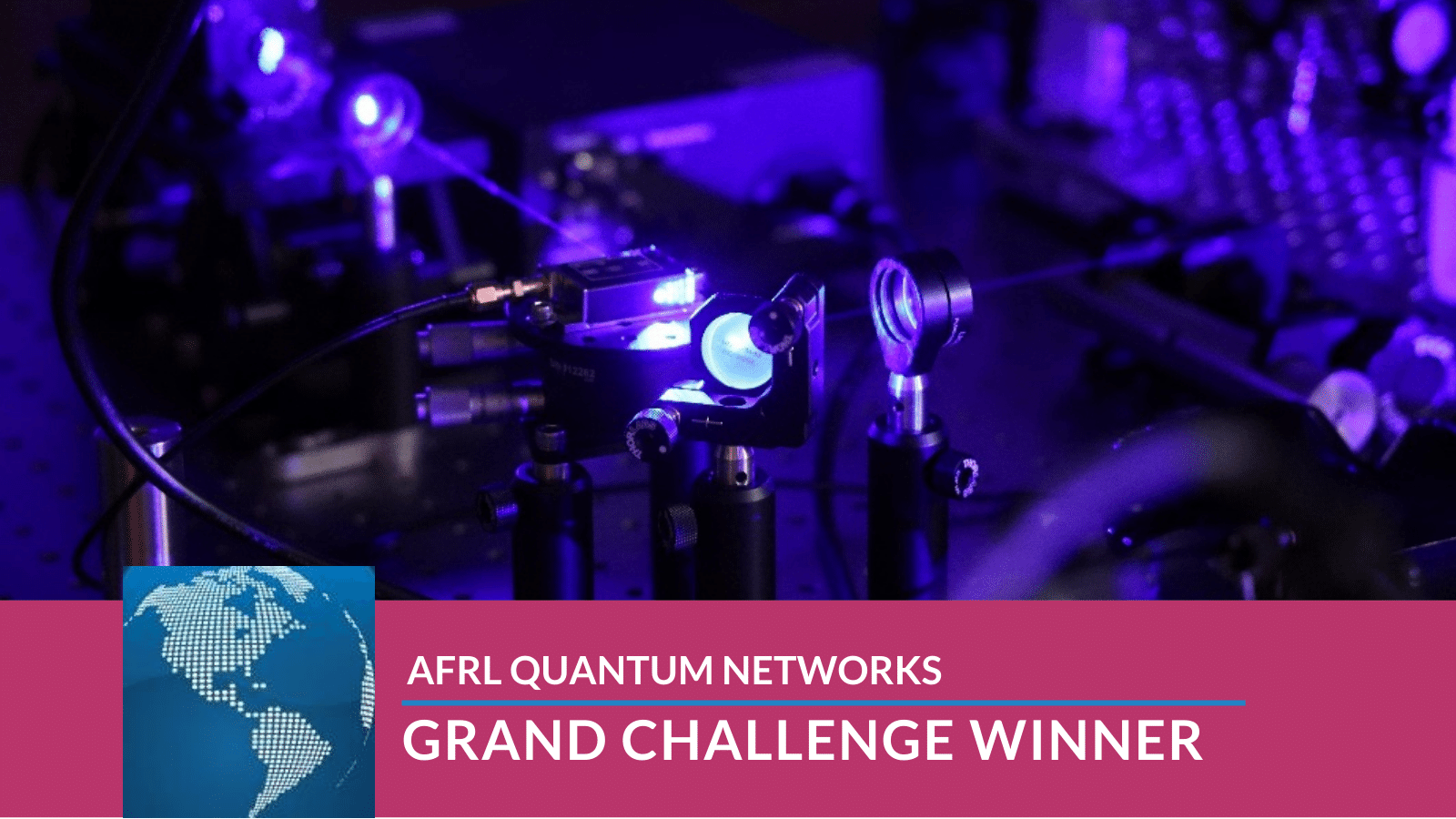This page has moved to the Defense Innovation Unit
You are being redirected to DIU.mil
This page has moved to the Defense Innovation Unit
You are being redirected to DIU.mil
We use cookies for analytics, to see our policy, please read our Privacy Policy.

A team from the University of Colorado (CU) Boulder has won Phase 1 of the NSIN-sponsored Air Force Research Laboratory (AFRL) High-Rate Entangled Photon Sources Enabling Quantum Networks Grand Challenge (AFRL Grand Challenge #3). The challenge includes the potential of a $500,000 contract, awarded in four development phases over the next nine months, to develop high-rate entangled-photon sources. The effort could enable global quantum networks, networked quantum sensors, and distributed quantum computing.
The team, led by Professors Krister Shalm and Paul Kwiat, pitched an innovative solution using spontaneous parametric downconversion (SPDC) to address the challenge of designing a device for generating entangled photons for earth-space links.
Each of the final teams impressed the judges, but the innovative approach taken by the UCB team put them over the edge. Regarding the challenge, Dr. Luke Bissell, Research Physicist, AFRL, shared, “It was a pleasure working with the NSIN contracting team to get this topic selection awarded. We had multiple high-quality submissions, and we’re thankful to everyone who took the time to submit proposals. We are very excited to work with Dr. Shalm and Dr. Kwiat and to see the results of their efforts to realize high-rate, high-purity entangled photons sources.”
About National Security Innovation Network
NSIN is a government program office within the Office of the Secretary of Defense for Research and Engineering (OSD(R&E)) that collaborates with major universities and the venture community to develop solutions that drive national security innovation. We operate two portfolios of programs and services: Talent and Venture. Together, these portfolios form a pipeline of activities and solutions that accelerate the pace of defense innovation.
Your browser is old and unsupported. You may still use the site, but functionality will be limited and you may see errors. Please consider updating your browser.